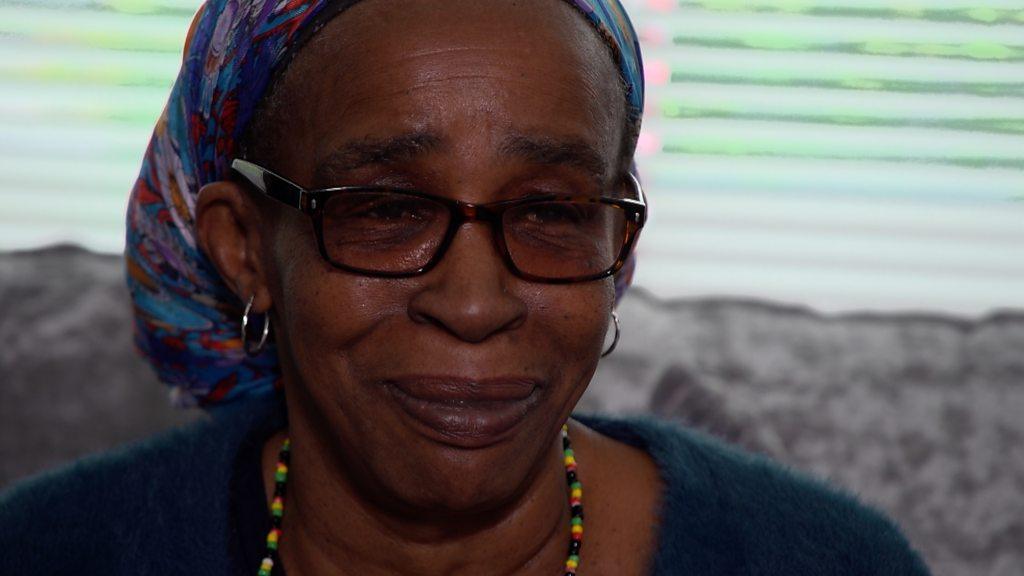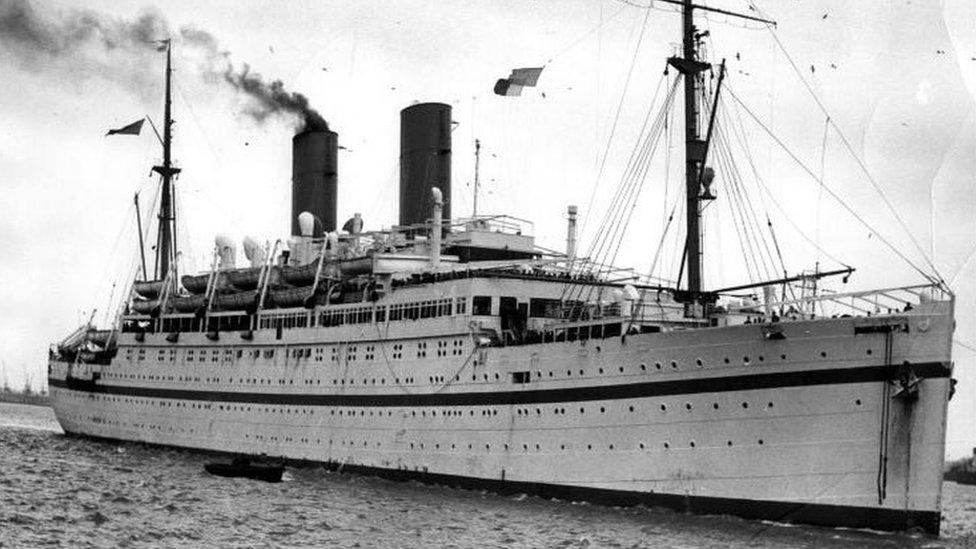The scars of the Windrush scandal in GAIKA's music
- Published
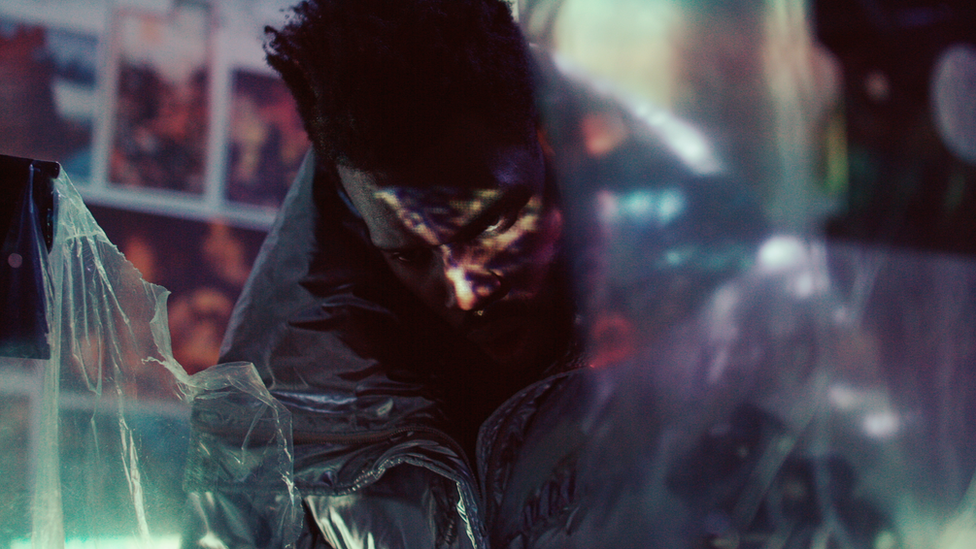
"When I think of Windrush now, I don't think of people standing smiling on a boat happy to arrive," says musician GAIKA, whose parents moved to the UK from Grenada and Jamaica in the 1960s.
"I think of a scandal of betrayal and a hostile environment."
Across the UK on 22 June, people of Caribbean descent will be celebrating Windrush Day, external.
It marks the anniversary of HMT Windrush arriving in Tilbury Docks, Essex, bringing the first Jamaican immigrants to Britain after World War Two.
To lots of people, it symbolises positivity - the beginning of Britain becoming more multicultural. But recently it has become of symbol of pain too.
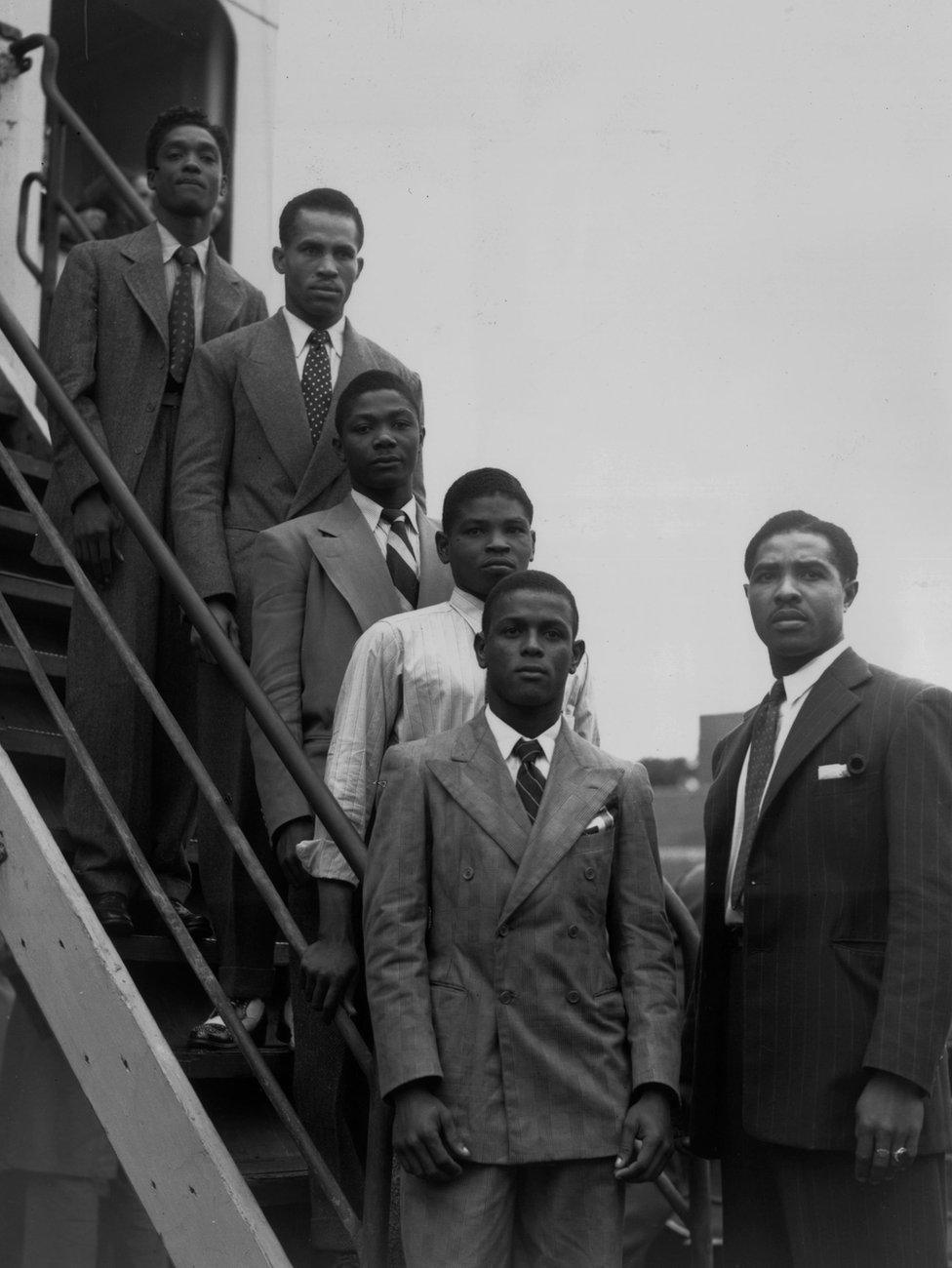
(Top to bottom) Hopeful Jamaican boxers Charles Smith, Ten Ansel, Essi Reid, John Hazel, Boy Solas and manager Mortimer Martin arrive at Tilbury on the Emire Windrush, 22 June 1948
The Windrush scandal - in which Caribbean people have been deported or detained by the British government - has for Gaika confirmed things he says he "already knew".
"My work deals with alienation, the alienation that we feel in being from somewhere but not really from there. I think the Windrush scandal kind of solidified that feeling.
"It's like 'Oh wait a minute, you're going to deport my grandma because she didn't have exactly the right papers after she's worked here for however many years?'"
Allow Instagram content?
This article contains content provided by Instagram. We ask for your permission before anything is loaded, as they may be using cookies and other technologies. You may want to read Meta’s Instagram cookie policy, external and privacy policy, external before accepting. To view this content choose ‘accept and continue’.

Much of the Brixton musician's album Basic Volume is inspired by his dad's experience of trying to "fit in" when he first arrived in London.
"My dad told a lot of stories about how he felt when he got here. He never really felt like he belonged, because he arrived from Jamaica when he was relatively old, like 16.
"He felt the pressure to be a 'good immigrant' and the pressure that if you haven't 'made it' financially then you're not anybody."
Charlton Phillip Tavares measurably did "make it" - working as a material scientist, and in his spare time amassing an enviable record collection.
And his Jamaican musical roots helped inspire the tracks his son makes today, which underpin the catchy shouts and drum loops of dancehall with foreboding, rumbling basslines.
That sound - which has won him fans including Radio 1's Benji B and 1Xtra's Jamz Supernova - isn't simple to define.
Perhaps that's why his music often gets described in the media as "alien".
Allow Instagram content?
This article contains content provided by Instagram. We ask for your permission before anything is loaded, as they may be using cookies and other technologies. You may want to read Meta’s Instagram cookie policy, external and privacy policy, external before accepting. To view this content choose ‘accept and continue’.

It's not a definition GAIKA rejects, saying that as a second-generation Caribbean person, he has always felt slightly apart from mainstream British culture.
His video installation SYSTEM, external, first shown at Somerset House in London last year, used footage from Notting Hill Carnival, the UK's biggest Caribbean street parade, to reflect his "outsider" status.
"For me, carnival is inspirational because it's this mass gathering of people just like me, who've been designated 'alien'.
"It's a celebration of a unique culture. To me that's political.
"It's about holding a space where it says 'We're not going to run, we're just going to play this music really loudly and we're going to celebrate our culture so it can't be destroyed'."
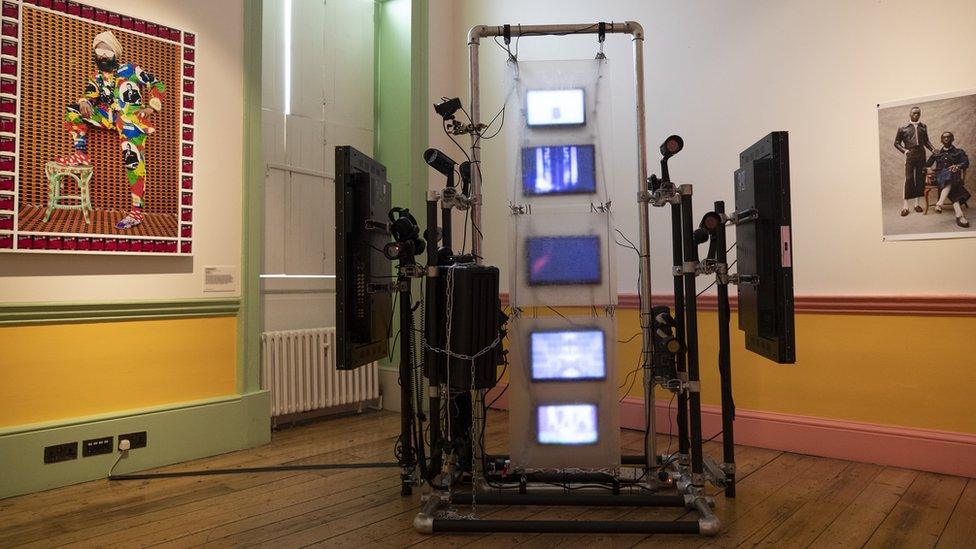
GAIKA's video installation as part of Get Up, Stand Up Now at Somerset House, London
GAIKA is currently showing a new video as part of Get Up Stand Up Now, an exhibition of more than 100 black artists, also at Somerset House.
By temporarily owning that space, something black artists aren't often able to do, GAIKA says that he and his fellow artists are making a political statement.
It takes him back to the Windrush scandal.
"It's only when we can create our own spaces that the pain in something like the Windrush scandal can become some way assuaged.
"That will go hand in hand with black British people feeling a little bit more British because, right now, I'm not sure that we do."


Follow Newsbeat on Instagram, external, Facebook, external, Twitter, external and YouTube, external.
Listen to Newsbeat live at 12:45 and 17:45 weekdays - or listen back here.
- Published17 April 2019
